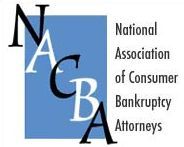The defendant has the right to proceed by jury in all cases where the most serious offense charged is a misdemeanor, felony, or murder charge. Also, the representative for the Commonwealth may elect to proceed by jury. The first step is picking the jury of twelve.
The defendant is present during the jury selection process and sits next to defense counsel. Defense counsel and the assistant district attorney ‘voir dire’ or question the jury pool based on a list of questions that the jury candidates have answered and submitted for review. Each side has an unlimited number of challenges for cause. Challenges for cause allege that the person would not be fair, unbiased, or capable of hearing the case.
For example, the potential juror may have a prejudice or prior experience that would prevent them from objectively listing to the testimony and rendering a decision based on the facts of that particular case. The prospective juror may have a health problem that prevents them from sitting for periods of time. Defense counsel and Commonwealth counsel also receive a specified number of peremptory challenges, or challenges where unlike challenges for cause, they do not have to give a reason why the potential juror could not render a fair verdict. According to Pennsylvania Rule of Criminal Procedure 634, in trials involving misdemeanors and only one defendant, the Commonwealth and the defendant shall each be entitled to 5 peremptory challenges and in trials involving non capital felonies and only one defendant, the Commonwealth and the defendant shall each be entitled to 7 peremptory challenges.
As the trial proceeds by jury, the judge referees the trial objections to the testimony and evidence presented to ensure that the trial is consistent with the Federal and Pennsylvania Rules of Evidence. At the end of the testimony, the attorneys for each side can submit proposed jury instructions to the judge who will decide the ultimate jury instructions that the jury will use in deliberating. All questions of law will be determined by the judge while the questions of fact will be left to the jury. Once the evidence is closed and the jury instructions have been given, the jury retires to deliberate.
The jury verdict must be unanimous in the decision to find the defendant guilty or not guilty, otherwise, the trial will result in a hung jury where the judge declares a mistrial and the defendant is vulnerable to another trial on the same charges in the future.
Waiver of a Jury Trial
According to Pennsylvania Rule of Criminal Procedure 620, a defendant and the attorney for the Commonwealth may waive a jury trial with approval by a judge of the court in which the case is pending, and elect to have the judge try the case without a jury. The judge will ask the defendant a series of questions to ensure that the waiver of a jury trial is voluntary and understood. When a jury trial is waived, the trial judge shall preside over the trial and determine all questions of law and fact and return a verdict in the case within seven days after the end of the trial.

